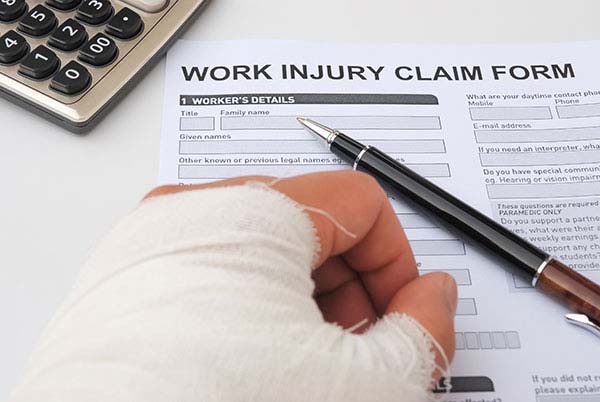
Have you been injured at work? Was the injury sustained as a result of carrying out your work duties? Did it occur as a result of your employer not having a safe workplace?
Every employer in Australia must meet workplace health and safety laws. If the standard of care is not met by your employer and you have suffered a mental or physical injury as a result, then you may be able to make a claim for worker’s compensation.
So how do you make a workers compensation claim? Each state has their own processes, but this article will explain the process in Victoria.
Lodge a form
Once you’ve determined that the injury sustained was while carrying out your work responsibilities, you are likely to be entitled to make a worker’s compensation claim. In essence, while the claim is against your employer, it’s most likely going to be managed and dealt with by your employer’s insurer. Because insurance companies have their own legal heavyweights, it’s highly recommended that you speak with a specialised personal injury lawyer, or one with expertise in worker’s compensation who can help guide you through the process.
If you are the employee, you’ll need to fill out a worker’s compensation claim form and send it to your employer who in turn needs to fill out and serve an injured worker claim form with their insurance company. It’s likely that they will also need to fill out some type of report of injury, which is a narrative of how the injury occurred and what injuries were sustained. Once the employer lodges the claim, then this is when the insurance company tends to take over.
The next question will be whether the employer (or insurance company) accepts the claim or contests it. The claim could be contested on various grounds, including:
- The injury sustained while not at a work site(e.g. during travel to work and not while at work)
- The injury sustained is not related to the employee’s work duties
- The injuries claimed did not occur at work but at another location
- The proposed treatment is disputed as not the most appropriate form of treatment.
If the claim is disputed and you are the injured worker, the employer’s insurance company will advise you of the dispute, and you will have the right to refer the matter to conciliation. Conciliation is a less formal process where an independent mediator considers the case and proposes outcomes that can be accepted and agreed upon by the parties. Conciliation is less costly and much quicker than taking the claim to court.
If the matter cannot be resolved at mediation, final resolution may lie with:
- A referral to the Medical Panel if the dispute deals with a medical question; or
- Permission to litigate the matter at court.
While court is more formal, it has the advantage of determining the outcome in accordance with the law.
Entitlements
If the claim is not contested by the employer and their insurer and is accepted, worker’s compensation payments will be made for the injury sustained.
So what are your entitlements in Victoria?
Worker’s compensation laws provide that an injured employer or spouse whose partner died whilst carrying out work duties is entitled to be compensated for:
- A lump sum
- Benefits in the event of death
- Weekly payments in the event of being incapacitated and unable to return to work, or unable to carry out the role that was had prior to injury
- Reimbursement for, or payment of, medical and other expenses associated with treating the injury.
It should be noted that worker’s compensation laws do not only cover physical injuries sustained at work, but may also cover mental health diagnoses that arose as a result of work. This includes work-related stress or anxiety due to workplace bullying or harassment, or post traumatic stress issues as a result of seeing something traumatic or tragic at work.
Determining the exact rate of weekly payments you may be entitled to depends on the level of your incapacitation – that is, are you able to return to the same role, a different role or unfit to return to work entirely? The payments can last up to retirement if appropriate. Again, to determine your specific entitlements it is encouraged you speak with a lawyer who has expertise in that particular field of law.
Most importantly, once a worker’s compensation claim is made, your employer is legally obligated for 12 weeks to find suitable employment for you in the business if you wish to return to work and have the capacity to do so. Failing to support your return to work in this way amounts to a breach of the worker’s rights under the legislation.
It may seem difficult to fight for your rights at a time when you are injured. It may seem confrontational – but it is not. It is the right of every employee to be compensated for injuries they sustained at work due to an employer’s negligence. And it is the right of every employee to have job security while they recover. Asserting this right is not just for you, but upholds fundamental values of employment.
 Call Us Today
Call Us Today



